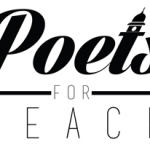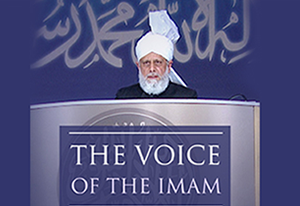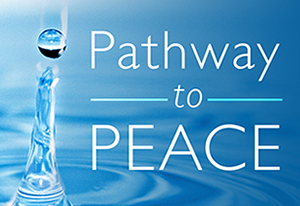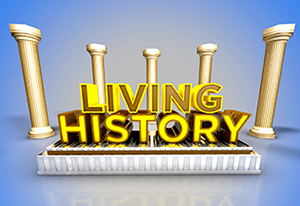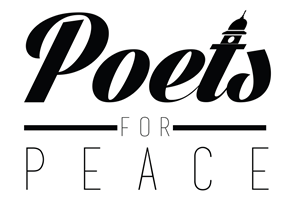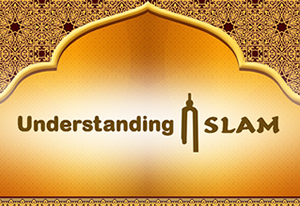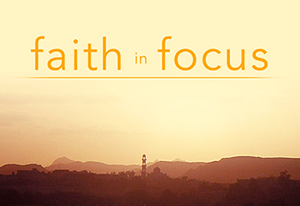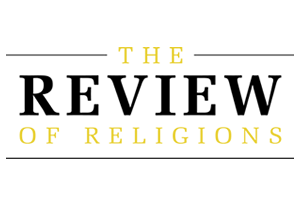Choose a day
00:00Monday
Episode 26. An address delivered by the Head of the Ahmadiyya Muslim Community, His Holiness Hazrat Mirza Masroor Ahmad (may Allah be his Helper) at a reception held on the occasion of the inauguration of the first Ahmadiyya Mosque (Baitul Masroor Mosque) in Brisbane, Australia, on 23rd October 2013. Many dignitaries including state MPs, Legan State council men and mayors and the Queensland police commissioner attended the event.
Learn more00:30Monday
Islam's response to contemporary Issues- Hadhrat Mirza Tahir Ahmad: In this episode learn about the life of the fourth successor and Khalifa of the Ahmadiyya Muslim Community and what Islam teaches us about the true meaning of democracy.
Learn more01:00Monday
Repeat of a live interactive show recorded on 18th February 2024.
Learn more02:00Monday
Episode 14. Origins of the Great Mughal Empire. Part I. Dr Mohammed Iqbal with guests Amjad Hussain and Arif Ahmed trace the link between the Mongols and the founders of the Mughal Empire and how Islam influenced a warrior nation. Learn about some of the great contributions from the Timurid Dynasty to Akbar the Great.
Learn more03:00Monday
Season 5 Episode 1: In this episode the Around the Table team investigates the impact of Climate Change on the planet Earth. The team explores the causes and drivers of climate change, but doesn't limit the investigation to just the environmental impact. The investigation also focuses on us, how we live and how life on Earth will be impacted. Join us as we explore the facts and figures describing Climate Change and aim to unearth the possible outcomes of it and what could happen if the problem persists unchecked. Is it all doom and gloom? Tune in to find out.
Learn more04:00Monday
Episode 67. Welcome to the Voice of the Caliph. You are now going to listen to the Keynote address delivered by the World Wide Head of the Ahmadiyya Muslim Community, Hazrat Mirza Masroor Ahmad (may Allah be his helper), at the Inauguration of the Baitus Salaam Mosque, Scunthorpe, UK. This blessed event took place on the 17th June 2023.
Learn more04:30Monday
Episode 5. Gratitude of the Holy Prophet (peace and blessings of Allah be upon him). The Holy Prophet (peace and blessings of Allah be upon him) perfectly embodied the qualityof gratitude and practiced it throughout his life. He said one who is not grateful to mankindis not grateful to Allah. He remained content in all circumstances wholeheartedly submittingto the will of God.Episode 6. Compassion- In light of Islamic teachings. Having compassion for the creation of God and serving mankind is at the heart of Islamicteachings. To do good to people without any consideration of reward or recompense is thenobility of human character.
Learn more05:00Monday
Episode 5. This episode explores the Holy Prophet Muhammad ﷺ’s journey to Ta’if, his endurance through rejection and suffering, and the early connections with Medina. We witness his mercy, patience, and steadfast faith, the transformative encounter with ‘Addas (may Allah be pleased with him), and the first pledges from the people of Medina. These events paved the way for the growth of Islam, highlighting lessons in perseverance, compassion, and reliance on God.
Learn more05:30Monday
Ramadan Talk Season 2 Episode 5. Education forms the foundations of any successful society, and has a lot more to do with Islam than you might think. Join us as we discuss how Muslims can use the month of Ramadan to appreciate and further educational pursuits.
Learn more06:00Monday
Episode 3: The theme for this programme shall be on Promoting Peace, and we will be looking at one of the efforts made in working towards this goal. We shall be chatting to our special guest Atiq Bhatti and discussing the part poetry has played in promoting peace in his area for over 14 years. And also listening to a poetical song performed by children of various ages, and one that is the highlight during the Slough & South Bucks Peace Symposium. Finally, we shall also be hearing inspiring poems written and read by both Miss Kaula Saeed and Miss Daanya Chaudhry.
Learn more06:30Monday
Tune is to hear recitation of the Holy Qur'an, Chapter 5 Verse 45-64. Recitation of the Holy Qur'an is by Maulana Feroz Alam.
Learn more07:00Monday
Wake up to the Breakfast Show and catch up with the latest news stories.
Learn more09:00Monday
Episode 7. Life of Muhammad. Part 2. Tune in to learn about the basic teachings of Islam. Tahir Selby teaches his student Mr Stuart Chatto about the life of the Holy Prophet Muhammad (peace and blessings of Allah be upon him). This material is also available on the online Islamic Course at www.free-islamic-course.org.
Learn more10:00Monday
Episode 45.Dr Mohammed Iqbal the host of Living History explores with fellow Panelists, Prof Amir Sharif and Yousaf Aftab the Life and Services of Hazrat Mirza Tahir Ahmad Ahmad Khalifatul Masih IV. The Script is based on all approved material by senior Jamaat officials including Imam sb Attaul Mujeeb Rashad that was prepared for documentaries to mark Khillafat Centenary celebrations.
Learn more11:00Monday
151 – Stresses of Modern Life We stress about anything and everything in life, whether it is about our child, house, career, education, health etc. which decreases our life expectancy, impairs our immune system increases our chances of getting sick. Yet, we don't stop. Why? Why do we run in a rat race to please others and forget to make our loved ones and ourselves happy? But in all this, what does Islam say about giving and taking stress? Let's explore this in today's show.
Learn more12:00Monday
Repeat of a live interactive show recorded on 11th February 2024.
Learn more13:00Monday
Episode 3. Whether you believe in God or not, some questions are just so big that they compel us all to think existentially. It’s time for a different conversation about morals, metaphysics and God. Because here at the Existence Project, we understand that sometimes, the most fascinating evidence for water, is thirst. This year, “The Existence Project” which has been launched by The Review of Religions will be providing the Jalsa guests with a truly inspiring and interactive experience and a variety of talks and presentations at their exhibition at this year’s jalsa. The radio show will be based around this very exhibition by highlighting some of the key aspects of the exhibition and the questions related to the existence of God, for example, the concept of God, experiencing God, and analysing atheism.
Learn more14:00Monday
Episode 14: In this show, we shall be speaking with a special guest on this show and hearing inspiring poetry from the acclaimed poet Alex Borthwick, who is from Durham in northeast England. Alex found an intimate link between spirituality and writing poetry, as poetry allowed him to think about spirituality in unique ways, which is why he found it perfect to develop his spirituality. We shall be hearing about his life, why he converted to Islam Ahmadiyyat, and hearing a selection of 12 poems which he had written to express his emotions as he went through the process of converting, and hence clarify his thoughts during this inspirational journey.
Learn more15:00Monday
Ramadan Talk Season 3 Episode 29. Join us this Ramadan as we explore the topic of 'Allah is our True Friend'.Ramadan Talk Season 3 Episode 30. The topic "the Messiah Has Come" explores the belief that the Messiah has arrived in our world. Here we delve into the perspective of the Ahmadiyya Muslim Community's interpretation of this belief which is supported by Qur'anic verses and Hadiths. This episode underscores the prophecies regarding the Promised Messiah (on whom be peace), the dire need for divine guidance, and the significance of the Messiah's arrival and the ongoing mission to revive true faith and knowledge in a spiritually declining world.
Learn more16:00Monday
Join in the debate of the day in this live interactive discussion programme.
Learn more18:00Monday
Episode 5. This episode explores the Holy Prophet Muhammad ﷺ’s journey to Ta’if, his endurance through rejection and suffering, and the early connections with Medina. We witness his mercy, patience, and steadfast faith, the transformative encounter with ‘Addas (may Allah be pleased with him), and the first pledges from the people of Medina. These events paved the way for the growth of Islam, highlighting lessons in perseverance, compassion, and reliance on God.
Learn more18:30Monday
Ramadan Talk Season 3 Episode 8. We are always taught from a very young age to tell the truth. Today we look at the concept of truthfulness and why it is so important to be truthful. We will also be looking how being truthful benefits someone personally as well as in a society and the significance of truth in Ramadan
Learn more19:00Monday
Season 4. Episode 1. We commence by discussing citizenship and its meaning; something many of us take for granted was not always given in history. We then discuss Islam’s understanding on citizenship starting with Hazrat Bilal (ra) and his emancipation. We also examine the lives of Najashi and Luqman, who were noble righteous individuals. We briefly examine Islam’s impact in Africa and then the trans-Atlantic slave trade. We focus on the erosion of complete civil liberties of slavery and Jim Crow laws. We examine the popular black thinkers in America and Africa, such as Du Bois, Blyden and Duse Ali, who aligned themselves to Islam that later Ahmadi missionaries would study.
Learn more19:30Monday
Episode 3. This special 30-part series delves into the divine attributes of God Almighty, exploring their significance and relevance in our lives. Through these discussions, we seek to answer fundamental questions: Who is our God? How can we recognize Him? And how do we strengthen our connection with Him through an understanding of His attributes? In today's episode, we focus on the attribute Al-Ghaffar (The Forgiving). With the insights of an esteemed guest, we will explore the depth of this characteristic, its impact on our spiritual journey, and its manifestation in our daily lives.
Learn more20:00Monday
Episode 25. An address delivered by the Head of the Ahmadiyya Muslim Community, His Holiness Hazrat Mirza Masroor Ahmad (may Allah be his Helper) at a reception held on the occasion of the inauguration of the “Baitur Rashid” Mosque in Hamburg, Germany on 5th December 2012. Many dignitaries including politicians, professors, doctors and leaders of different religious faith attended the event.
Learn more21:00Monday
Series 3. Episode 1. Philosophy of the Teachings of Islam. Tune in to learn about the teachings of Islam. Tahir Selby is joined by Alex Borthwick and Farhan Ali to discuss the book 'Philosophy of the Teachings of Islam' by Hazrat Mirza Ghulam Ahmad a.s. To help understand the book easier, questions have been made from the book and then they are discussed. In this programme they will discuss the first part of Question One - The Physical, Moral and Spiritual States of Man, taken from the pages 1 - 49 and covers:- The 3 stages of natural states; The Soul; Progress of man; Pork, Chastity, etc.
Learn more22:00Monday
Episode 45.Dr Mohammed Iqbal the host of Living History explores with fellow Panelists, Prof Amir Sharif and Yousaf Aftab the Life and Services of Hazrat Mirza Tahir Ahmad Ahmad Khalifatul Masih IV. The Script is based on all approved material by senior Jamaat officials including Imam sb Attaul Mujeeb Rashad that was prepared for documentaries to mark Khillafat Centenary celebrations.
Learn more23:00Monday
151 – Stresses of Modern Life We stress about anything and everything in life, whether it is about our child, house, career, education, health etc. which decreases our life expectancy, impairs our immune system increases our chances of getting sick. Yet, we don't stop. Why? Why do we run in a rat race to please others and forget to make our loved ones and ourselves happy? But in all this, what does Islam say about giving and taking stress? Let's explore this in today's show.
Learn more00:00Tuesday
Repeat of a live interactive show recorded on 18th February 2024.
Learn more01:00Tuesday
Episode 3. Whether you believe in God or not, some questions are just so big that they compel us all to think existentially. It’s time for a different conversation about morals, metaphysics and God. Because here at the Existence Project, we understand that sometimes, the most fascinating evidence for water, is thirst. This year, “The Existence Project” which has been launched by The Review of Religions will be providing the Jalsa guests with a truly inspiring and interactive experience and a variety of talks and presentations at their exhibition at this year’s jalsa. The radio show will be based around this very exhibition by highlighting some of the key aspects of the exhibition and the questions related to the existence of God, for example, the concept of God, experiencing God, and analysing atheism.
Learn more02:00Tuesday
Episode 14: In this show, we shall be speaking with a special guest on this show and hearing inspiring poetry from the acclaimed poet Alex Borthwick, who is from Durham in northeast England. Alex found an intimate link between spirituality and writing poetry, as poetry allowed him to think about spirituality in unique ways, which is why he found it perfect to develop his spirituality. We shall be hearing about his life, why he converted to Islam Ahmadiyyat, and hearing a selection of 12 poems which he had written to express his emotions as he went through the process of converting, and hence clarify his thoughts during this inspirational journey.
Learn more03:00Tuesday
Episode 32. Marriage. The 2021 UK census highlighted a slump in younger people marrying. In 1991, 2.7 million 25- to 35-year-olds were unmarried. Today that figure is at 5.8 million. What perceptions do we have of marriage today that young people are delaying it? Women gained the right to work in the UK in early 20th century. They needed financial security and marriage for many, was the only way. With changed circumstances, is it that” marriage “doesn’t really make sense anymore” for women? We explore that there is more to marriage than meets the eye and why Islam views marriage as extremely favourable.
Learn more04:00Tuesday
Episode 33. Fatherhood. Father’s Day is commemorated in the month of June in the UK. This programme focuses in on the origins of the celebration, and what it means to be a father in today’s world. A look at modern day problems of bringing up children including what it means for groups such as Fathers 4 Justice. Take a deeper look at fathers from scripture, notably the patriarch of the three faiths, Prophet Abraham (on whom be peace) and the example of the Holy Prophet of Islam along with his teachings on fatherhood that prove to be relevant as much in today’s society as they were hundreds of years ago.
Learn more05:00Tuesday
Episode 6. This episode explores the Hijrah — the migration of the Holy Prophet Muhammad ﷺ from Mecca to Medina — and the establishment of the first Islamic community. We follow the secret pledges at ‘Aqaba, the divine protection during the journey, and the Prophet’s ﷺ arrival in Medina. Discover how he united the Muhajirun and Ansar, drafted the Charter of Medina, and built a society based on justice, peace, and brotherhood. The episode highlights lessons in faith, sacrifice, and the transformative power of mercy and unity.
Learn more05:30Tuesday
Ramadan Talk Season 2 Episode 6. The Holy Quran highlights in Surah An- Naml ( 27:33) "Behave not proudly towards me, but come to me in submission" Join us today as we talk about how Ramadan pulls us closer to Allah through submission.
Learn more06:00Tuesday
The Life of the Prophet Muhammad (peace be upon him)- Here we will explore the life of the great Prophet and how he established the religion on Islam, we will also hear what the views of historians regarding the life and works of the Prophet were. Book Early stories of Islam by Rashid Ahmad Chaudhry
Learn more06:30Tuesday
Tune is to hear recitation of the Holy Qur'an, Chapter 5 Verse 65-83. Recitation of the Holy Qur'an is by Maulana Feroz Alam.
Learn more07:00Tuesday
Wake up to the Breakfast Show and catch up with the latest news stories.
Learn more09:00Tuesday
Episode 26. An address delivered by the Head of the Ahmadiyya Muslim Community, His Holiness Hazrat Mirza Masroor Ahmad (may Allah be his Helper) at a reception held on the occasion of the inauguration of the first Ahmadiyya Mosque (Baitul Masroor Mosque) in Brisbane, Australia, on 23rd October 2013. Many dignitaries including state MPs, Legan State council men and mayors and the Queensland police commissioner attended the event.
Learn more09:30Tuesday
Episode 20. The theme of this show is I am certain close to all of our hearts, as we all have a mother and we love them very dearly. We shall be hearing from five very talented poets with their varying expressions of love for their Mother which we hope will pluck upon the strings of your heart. No other religion lays so much emphasis on the kindness to your parents than Islam, especially your mother, and we shall explore this in more detail along with hearing some amazing poems about our Dear Mothers.
Learn more10:00Tuesday
Episode 5. Our guest is Peter Oborne, an award-winning British journalist, author & broadcaster. Peter was the Chief Political Correspondent of The Daily Telegraph (until he resigned in 2015) and has written for countless newspapers and magazines including The Spectator and The Guardian. He has also appeared on and presented TV shows and documentaries. We discuss Peter's recent book, “The Fate of Abraham: Why the West is Wrong about Islam”, and uncover why & how Muslims have been perniciously targeted by the West, despite Islam being part of the Abrahamic tradition.
Learn more11:00Tuesday
Series 2. Episode 2. Khilafat. Tune in to learn about the basic teachings of Islam. Tahir Selby is joined by Farhan Ali and Stuart Chatto to discuss about Ahmadiyyat, the true Islam. In this programme they discuss the need and blessings of a Khalifa, the importance of obedience to the Khalifa and how a Khalifa is elected? This material is also available Online at www.WhyAhmadi.org.
Learn more12:00Tuesday
Episode 3. The address delivered by His Holiness to the ladies at the Jalsa Salana UK 2021 detailed the justice of Islamic teachings pertaining to the rights and responsibilities of both men and women and the need for ‘opening our spiritual eyes’. In this episode of SoA, we will further discuss some of the topics that were addressed by His Holiness, including but not limited to; further exploring the rights granted to women by Islam, and how this relates to secular feminist ideologies; commenting on the emphasis Islam places on secular and spiritual education for women and how justice for women is ingrained in Islamic principles.
Learn more13:00Tuesday
Episode 4. As per WHO estimate, 1.13 billion people worldwide have high blood pressure or hypertension. Almost all of them known as essential or primary hypertension. This an entirely a treatable condition. Unfortunately, a vast majority of the hypertensive patients are undertreated, and a significant number of people are unaware that they have high blood pressure. In this episode, we discuss the importance of health check and how to monitor blood pressure at home. We also highlighted the complications of untreated hypertension.
Learn more13:30Tuesday
Episode 1. This special 30-part series delves into the divine attributes of God Almighty, exploring their significance and relevance in our lives. Through these discussions, we seek to answer fundamental questions: Who is our God? How can we recognize Him? And how do we strengthen our connection with Him through an understanding of His attributes? In today's episode, we focus on the attribute Ar-Rahman (The Most Merciful). With the insights of an esteemed guest, we will explore the depth of this characteristic, its impact on our spiritual journey, and its manifestation in our daily lives.
Learn more14:00Tuesday
Episode 27. Address delivered to locals and dignitaries by the Head of the Ahmadiyya Muslim Community, Hazrat Mirza Masroor Ahmad (may Allah be his Helper) at the inauguration of Noor Mosque, Crawley and reception held for local dignitaries on 18th January 2014.
Learn more14:25Tuesday
Episode 12. The Holy Prophet (peace and blessings be upon him) – The Embodiment of Peace. The noble character and teachings of the Holy Prophet (peace and blessings be upon him) transformed a society steeped in all sorts of injustices and depravity to one that became a haven of peace and centre of intellectual, spiritual and moral progress.
Learn more15:00Tuesday
Ramadan Talk Season 3 Episode 28. During the month of Ramadan, Muslims should make special effort to seek forgiveness. Islam highlights the balanced approach of punishment and forgiveness, with the central focus on reformation. Join us as we discuss the essence of forgiveness, whether it’s the act of forgiving, or seeking forgiveness. Season 4 Episode 3. This special 30-part series delves into the divine attributes of God Almighty, exploring their significance and relevance in our lives. Through these discussions, we seek to answer fundamental questions: Who is our God? How can we recognize Him? And how do we strengthen our connection with Him through an understanding of His attributes? In today's episode, we focus on the attribute Al-Ghaffar (The Forgiving). With the insights of an esteemed guest, we will explore the depth of this characteristic, its impact on our spiritual journey, and its manifestation in our daily lives.
Learn more16:00Tuesday
Join in the debate of the day in this live interactive discussion programme.
Learn more18:00Tuesday
Episode 6. This episode explores the Hijrah — the migration of the Holy Prophet Muhammad ﷺ from Mecca to Medina — and the establishment of the first Islamic community. We follow the secret pledges at ‘Aqaba, the divine protection during the journey, and the Prophet’s ﷺ arrival in Medina. Discover how he united the Muhajirun and Ansar, drafted the Charter of Medina, and built a society based on justice, peace, and brotherhood. The episode highlights lessons in faith, sacrifice, and the transformative power of mercy and unity.
Learn more18:30Tuesday
Ramadan Talk Season 3 Episode 9. In today’s show we will talk about how the Quranic directives for mosque attendance emphasize the integral connection between unwavering faith, belief in the Hereafter, and fulfilling religious obligations and how mosques serve as dynamic centers for spiritual growth, community cohesion, and character development.
Learn more19:00Tuesday
Episode 7. Origins of Islam. A discussion with Dr.Muhammad Iqbal about the 'Origins of Islam', on the life and mission of Holy Prophet of Islam (peace and blessings of Allah be upon him).
Learn more20:00Tuesday
Episode 48. East West II. In Part Two of our series on ‘East and West’, Faith in Focus delves deep into the cultural, literary and spiritual facets of the East-West divide. We take a look at the languages and dialects of the two regions before examining the cultural and literary traditions of both East and West. From the spell-binding and soul-awakening mystical poetry of the Sufis and the Sages to the breath-taking portraits and paintings of the European Renaissance, we take a look at some of the most exquisite pieces of art produced by man. We also journey through the lands of East and West to try and piece together the story of the spiritual journey of man- the story of the rich spiritual and religious traditions of East and West.
Learn more21:00Tuesday
Episode 52. On Saturday 28 September 2019, the World Head of the Ahmadiyya Muslim Community, the Fifth Khalifa (Caliph), His Holiness, Hazrat Mirza Masroor Ahmad addressed an audience of more than 125 dignitaries and guests on the second day of the 39th Annual Convention (Jalsa Salana) of the Ahmadiyya Muslim Community in Holland.
Learn more21:30Tuesday
Episode 30.The Theme for this show is ‘Her Majesty the Queen’. On the 8th of September 2022, Queen Elizabeth 2nd died in the United Kingdom, at the age of 96. She had reigned for 70 years and had thus become the longest reigning British monarch in history. Upon her passing, she was succeeded by her eldest child, now known as King Charles III. The country and the world paid countless tributes to this noble Queen in almost every way, and we shall now hear a few poetical tributes which I hope will give you a small essence of the great monarch that she was. The first poem is from the Poet Laureate Simon Armitage, who had written this to mark the Queens death. It has two verses, or stanzas and nine lines, and the first letter of each line when taken together spells out Elizabeth. It is read very eloquently by brother Munir Rafiq and is titled ‘Floral Tribute’. The second poem is from Sir Ian Duncan Smith, Member of Parliament in England, who read a tribute to her late Majesty the Queen in the House of Commons on the 9th of September 2022 where he also quotes some poetical verses. The third poem was written by the poet Joanne Boyle following the sad passing of Queen Elizabeth II which seems to encapsulate the feelings of the nation and is being read by the talented sister Faiza Mirza. We then hear the National anthem which was sung on the 12th of September 2022, after King Charles III gave a historic address to MP’s in parliament for the first time where he paid tribute to the Queen The next poem has some ancient background and is actually about Queen Elizabeth the first, so it’s almost 500 years old, and is believed to have been written by William Shakespeare. Apparently he wrote this poem at the back of an envelope and this was probably composed as an epilogue for a performance of a play in the presence of the queen. The poem is titled: “To the Queen" and is being read by brother Salim Ullah. Our final piece for this show, is a special prayer for an equally special Queen. A prayer which epitomises the love that one person has for the whole of mankind and one that is extended to even the Queen. In 1897, Hazrat Mirza Ghulam Ahmad, who claimed to be The Promised Messiah (peace be upon him), wrote the book Tohfa-e-Qaisariyyah, which translates ‘ A Gift for the Queen’, which he wrote on the occasion of the Diamond Jubilee of Her Majesty Queen Victoria. We shall hear the English version of a portion of this beautiful prayer within this book which was recited in six languages.
Learn more22:00Tuesday
Episode 5. Our guest is Peter Oborne, an award-winning British journalist, author & broadcaster. Peter was the Chief Political Correspondent of The Daily Telegraph (until he resigned in 2015) and has written for countless newspapers and magazines including The Spectator and The Guardian. He has also appeared on and presented TV shows and documentaries. We discuss Peter's recent book, “The Fate of Abraham: Why the West is Wrong about Islam”, and uncover why & how Muslims have been perniciously targeted by the West, despite Islam being part of the Abrahamic tradition.
Learn more23:00Tuesday
Series 2. Episode 2. Khilafat. Tune in to learn about the basic teachings of Islam. Tahir Selby is joined by Farhan Ali and Stuart Chatto to discuss about Ahmadiyyat, the true Islam. In this programme they discuss the need and blessings of a Khalifa, the importance of obedience to the Khalifa and how a Khalifa is elected? This material is also available Online at www.WhyAhmadi.org.
Learn more00:00Wednesday
Episode 3. The address delivered by His Holiness to the ladies at the Jalsa Salana UK 2021 detailed the justice of Islamic teachings pertaining to the rights and responsibilities of both men and women and the need for ‘opening our spiritual eyes’. In this episode of SoA, we will further discuss some of the topics that were addressed by His Holiness, including but not limited to; further exploring the rights granted to women by Islam, and how this relates to secular feminist ideologies; commenting on the emphasis Islam places on secular and spiritual education for women and how justice for women is ingrained in Islamic principles.
Learn more01:00Wednesday
Episode 4. As per WHO estimate, 1.13 billion people worldwide have high blood pressure or hypertension. Almost all of them known as essential or primary hypertension. This an entirely a treatable condition. Unfortunately, a vast majority of the hypertensive patients are undertreated, and a significant number of people are unaware that they have high blood pressure. In this episode, we discuss the importance of health check and how to monitor blood pressure at home. We also highlighted the complications of untreated hypertension.
Learn more01:30Wednesday
Episode 1. This special 30-part series delves into the divine attributes of God Almighty, exploring their significance and relevance in our lives. Through these discussions, we seek to answer fundamental questions: Who is our God? How can we recognize Him? And how do we strengthen our connection with Him through an understanding of His attributes? In today's episode, we focus on the attribute Ar-Rahman (The Most Merciful). With the insights of an esteemed guest, we will explore the depth of this characteristic, its impact on our spiritual journey, and its manifestation in our daily lives.
Learn more02:00Wednesday
Episode 28. An address delivered by the Head of the Ahmadiyya Muslim Community, His Holiness Hazrat Mirza Masroor Ahmad (may Allah be his Helper) at a reception held in his honour at the Hilton Hotel in Copenhagen, Denmark on 9th May 2016. More than 125 politicians, academics and community leaders attended the historic event.
Learn more02:30Wednesday
Episode 5. A lively discussion between scholars of completely different religions to tackle one tough question. In this week's episode, "A Jewish Rabbi, A Muslim Imam and a Christian pastor answer if their religion has ever created evil and evil people?".
Learn more03:00Wednesday
Episode 1: The Islamic Renaissance: The Historic Journey of Hazrat Mirza Bashir-ud-Din Mahmud Ahmad, Khalifatul Masih II, in 1924 In this episode, we explored the historical presence of Islam in the UK before the arrival of Ahmadiyya Muslim missionaries before the start of the 20th century. We also covered the significant to establish Islam in Western countries and the prophecies of the Holy Prophet, may peace and blessings of Allah be upon him, concerning this matter i.e. “Sun of Islam rising from the west”. How did the promised Messiah, peace be on him, fulfil this prophecy? We also covered the companions of the Promised Messiah, peace be on him, that were sent to England during his lifetime.
Learn more04:00Wednesday
Series 2 Episode 10. In this episode we will be in conversation with Dr Ejaz Seerat who has undertaken some interesting research on the topic of the Holy Qur’an and Science. She is a medical doctor by profession and has worked as a child specialist in Federal Government Hospital Islamabad Pakistan for more than 25 years. Dr Seerat has presented many research papers and participated in many seminars relating to her specialized area of mother and child health and nutrition in various countries across the world. She has worked in many community outreach programs and charitable programs. In this episode we will also have a guest panelist Razwan Baig who also produces programs on the Voice of Islam radio. In this episode Dr Ejaz Seerat will present fascinating aspects of science in the Holy Qur’an and also prophecies contained in the Holy Quran.
Learn more05:00Wednesday
Episode 7. In this episode, we reflect on the Battle of Badr, a defining moment in the life of the Holy Prophet Muhammad ﷺ. Despite being vastly outnumbered and poorly equipped, the Muslims demonstrated courage, faith, and reliance on God. We explore how the Holy Prophet ﷺ led his companions, including Hazrat ‘Abbas and Hazrat Abu’l ‘As, to victory, the ethical treatment of prisoners, and the fulfilment of divine prophecy, showing that faith and steadfastness can overcome overwhelming odds.
Learn more05:30Wednesday
Ramadan Talk Season 2 Episode 7. Join us this Ramadan as we look at embracing and increasing our love for faith by turning to the Holy Qur’an and dedicated worship in Ramadan.
Learn more06:00Wednesday
Episode 1: Join Kaleem Chris Edwards for another episode of “Serving Mankind with Humanity First” where we will be in conversation with: Humanity First UK– International Programme Directors Kalim Sadiq Fresh from a recent trip to Uganda and Kenya covering his role as Director of International Programmes we discuss a range of issues faced in his countries. We look at the benefits of volunteering and how the listener can get involved and be part of the solution. We give some background on the history of Humanity First and how serving mankind is incumbent on people of faith.
Learn more06:30Wednesday
Tune is to hear recitation of the Holy Qur'an, Chapter 2 Verse 170-194. Recitation of the Holy Qur'an is by Maulana Feroz Alam.
Learn more07:00Wednesday
Wake up to the Breakfast Show and catch up with the latest news stories.
Learn more09:00Wednesday
Repeat of a live interactive show recorded on 11th January 2026.
Learn more10:00Wednesday
Episode 7. In this episode, we meet IAAAE’s AEC team, as we explore the critical issue of energy poverty and its widespread impact on society and populations in developing countries. We discuss IAAAE’s innovative and sustainable solutions to address these challenges, including the delivery of impactful energy projects to remote locations where needs are often overlooked. Listeners gain an insight into the meticulous preparation involved in these projects, the welcoming generosity of beneficiaries, and the transformative impact of initiatives like electrification and satellite TV, which connect remote villages to the outside world. Through the lens of local volunteers like Rashid joining us from Tanzania, we’ll hear about the life-changing experiences of serving others and the spirit of sacrifice that drives this work. We’ also highlight the AEC committee’s evolution, showcasing innovations like modular energy solutions and remote monitoring devices developed by engineers. Finally, we touch upon future plans for capacity building, creating local expertise, and expanding career opportunities, ensuring lasting benefits and sustainability for locals in the communities served.
Learn more11:00Wednesday
Episode 191. The Ups and Downs of Life Throughout life moments of both extreme happiness and extreme sadness will become apparent. The times when we go through the "downs" of life, it is easy to question yourself, those around you, and, God forbid, even God. This episode of Faith in Focus will discuss the ways in which humans have dealt with these moments and how Islam teaches to deal either of them.
Learn more12:00Wednesday
Season 4. Episode 7. The Heart and The Brain: The Science of Thought and Emotion. Is the mind really in the brain - or does the heart play a greater role than we think? In this thought-provoking programme, we uncover the mysterious partnership between the heart and the brain: how they shape our emotions, drive our intellect and even influence the way we think and feel. Journey with us through cutting-edge neuroscience and timeless Islamic wisdom as we explore how thought, emotion and spirituality intertwine. Can the heart truly think? Can the brain feel? The answers may change the way you understand yourself forever.
Learn more13:00Wednesday
Series Seven, Episode 4. The Signs and Help of Allah (Nishanaat) for the Promised Messiah (a.s.) from the book Malfoozat Vol. 10. Tune in to learn about the basic teachings of Islam. Tahir Selby is joined by Hannan Arshad, Basil Aziz and Eeqan Ahmad to discuss about the various Signs and Help that Allah gave to the Promised Messiah (a.s.). We discuss a passage from Malfoozat where the Promised Messiah (a.s.) has explained about these Signs and Help that Allah bestowed upon him. In this programme we discuss the signs of the Latter Days mentioned in the Holy Qur’an, especially focusing on Chapter 81 - Sura Al-Takwir and explaining some of the verses from this Chapter and how these prophecies have been fulfilled in the Latter Days, these days. Therefore, showing that this is the time of the Promised Messiah to have come.
Learn more14:00Wednesday
Repeat of a live interactive show recorded on 25th February 2024.
Learn more15:00Wednesday
Ramadan Talk Season 3 Episode 26. Join us as we explore how Ramadan serves as a time for Muslims to reflect and ponder and be a time where we seek Gods special Mercy and Forgiveness. Ramadan is a time when more focus is given towards self reformation and forging healthier habits, both spiritually and morally.Ramadan Talk Season 3 Episode 27. Total trust and dependence on anything in life requires belief and confidence. The same is the case for one’s trust in Allah the Almighty. It has to be unconditional, firm and not confined to only when we are in stress. Instead, that belief and dependence should be a believer’s strength at all times. Indeed, even prophets have gone through so much pain and hardship, and it is from their lives that we can learn this very important lesson.
Learn more16:00Wednesday
Join in the debate of the day in this live interactive discussion programme.
Learn more18:00Wednesday
Episode 7. In this episode, we reflect on the Battle of Badr, a defining moment in the life of the Holy Prophet Muhammad ﷺ. Despite being vastly outnumbered and poorly equipped, the Muslims demonstrated courage, faith, and reliance on God. We explore how the Holy Prophet ﷺ led his companions, including Hazrat ‘Abbas and Hazrat Abu’l ‘As, to victory, the ethical treatment of prisoners, and the fulfilment of divine prophecy, showing that faith and steadfastness can overcome overwhelming odds.
Learn more18:30Wednesday
Ramadan Talk Season 3 Episode 10. The Holy Qur’an is the perfect book. One that contains a complete guidance for mankind and explores the depth of man’s relationship with God Almighty. However, critics of Islam have made many objections to the claim by Muslims that the Quran is perfectly preserved. Join us as we understand what methods were used for the preservation of the Holy Qur’an and why it is a perfect book of guidance.
Learn more19:00Wednesday
Season 1. Episode 1. This episode is an introduction to the series. Primarily it covers the importance of the African-American journey to Ahmadiyya Muslim Community. This journey started with the Holy Prophet Muhammad (peace and blessings be upon him). Then as Islam progressed and spread to Africa it became indigenous to the Africans. Then finally we review how Africans came to America in the slave trade.
Learn more19:30Wednesday
Episode 5. This special 30-part series delves into the divine attributes of God Almighty, exploring their significance and relevance in our lives. Through these discussions, we seek to answer fundamental questions: Who is our God? How can we recognize Him? And how do we strengthen our connection with Him through an understanding of His attributes? In today's episode, we focus on the attribute Al-Malik (The Sovereign). With the insights of an esteemed guest, we will explore the depth of this characteristic, its impact on our spiritual journey, and its manifestation in our daily lives.
Learn more20:00Wednesday
Series Eight, Episode 3. Ahmad, the Guided One. Tune in to learn about the basic teachings of Islam. Tahir Selby is joined by Hannan Arshad, Dr Toqeer Ahmed, Azeem Ahmed and Hashir Ahmad to discuss his early life in Sialkot, his concern about the decline of Islam and how he tried to defend Islam, taken from the book Ahmad, the Guided One, by Iain Adamson. We discuss passages from the book which explains how the Promised Messiah (a.s.) was in Sialkot and how he started to meet people of other faiths, especially Christians. Then how he returned to Qadian and started to write books and discussions and became known as a champion of Islam.
Learn more21:00Wednesday
Repeat of a live interactive show recorded on 21st December 2025.
Learn more22:00Wednesday
Episode 1. This radio segment will introduce the International Association of Ahmadi Architects and Engineers (IAAAE), showcasing its history, mission, and key initiatives. The program will highlight how IAAAE provides essential services such as potable water, renewable energy, and sustainable village infrastructure to communities in developing countries. Through stories of their evolution from small beginnings to impactful global projects, listeners will gain insight into the importance of research, knowledge-sharing, and innovation. The segment will also celebrate the spirit of volunteerism and sacrifice that defines IAAAE’s work, while addressing the challenges they face and their strategies to overcome them.
Learn more23:00Wednesday
Episode 191. The Ups and Downs of Life Throughout life moments of both extreme happiness and extreme sadness will become apparent. The times when we go through the "downs" of life, it is easy to question yourself, those around you, and, God forbid, even God. This episode of Faith in Focus will discuss the ways in which humans have dealt with these moments and how Islam teaches to deal either of them.
Learn more00:00Thursday
Season 4. Episode 7. The Heart and The Brain: The Science of Thought and Emotion. Is the mind really in the brain - or does the heart play a greater role than we think? In this thought-provoking programme, we uncover the mysterious partnership between the heart and the brain: how they shape our emotions, drive our intellect and even influence the way we think and feel. Journey with us through cutting-edge neuroscience and timeless Islamic wisdom as we explore how thought, emotion and spirituality intertwine. Can the heart truly think? Can the brain feel? The answers may change the way you understand yourself forever.
Learn more01:00Thursday
Series 2. Episode 5. Death of Jesus according to the Holy Bible. Tune in to learn about the basic teachings of Islam. Tahir Selby is joined by Farhan Ali (a new convert from a Shi'ite background) and Stuart Chatto (a new convert from a Christian background) to discuss about Ahmadiyyat, the true Islam, in response to our Khalifah's desire that every Ahmadi Muslim should fully understand why they are an Ahmadi Muslim and what are the claims of the Promised Messiah (a.s)? In this programme they will discuss whether the Holy Bible states that Jesus died on the cross or not. This material is also available Online at www.WhyAhmadi.org.
Learn more02:00Thursday
Repeat of a live interactive show recorded on 11th February 2024.
Learn more03:00Thursday
Episode 32. An address delivered by the worldwide Head of the Ahmadiyya Muslim Community, His Holiness Hazrat Mirza Masroor Ahmad (may Allah be his Helper), to guests at the Annual Convention of the Ahmadiyya Muslim Community Germany in 2013.
Learn more03:00Thursday
Episode 4. We will explore the clashes between culture and religion which lead to misconceptions about Islam and women’s rights. We’ll distinguish between the culture/politics of Islamic Republics and the true religious teachings of Islam as set out in the Holy Quran by comparing the oppressive laws of some countries in the name of Sharia Law, with the actual rights bestowed upon women in the Holy Qur’an by Allah Almighty. We’ll mention how in many cases, law itself evolves from religion and morality. Through doing so we’ll seek to combat the critiques of those who describe religious doctrine as outdated and instead prove that the Holy Qur’an is a scripture for all times.
Learn more03:30Thursday
Episode 5. Gratitude of the Holy Prophet (peace and blessings of Allah be upon him). The Holy Prophet (peace and blessings of Allah be upon him) perfectly embodied the qualityof gratitude and practiced it throughout his life. He said one who is not grateful to mankindis not grateful to Allah. He remained content in all circumstances wholeheartedly submittingto the will of God.Episode 6. Compassion- In light of Islamic teachings. Having compassion for the creation of God and serving mankind is at the heart of Islamicteachings. To do good to people without any consideration of reward or recompense is thenobility of human character.
Learn more04:00Thursday
Season 4. Episode 2. We commence by discussing citizenship and its meaning; something many of us take for granted was not always given in history. We then discuss Islam’s understanding on citizenship starting with Hazrat Bilal (ra) and his emancipation. We also examine the lives of Najashi and Luqman, who were noble righteous individuals. We briefly examine Islam’s impact in Africa and then the trans-Atlantic slave trade. We focus on the erosion of complete civil liberties of slavery and Jim Crow laws. We examine the popular black thinkers in America and Africa, such as Du Bois, Blyden and Duse Ali, who aligned themselves to Islam that later Ahmadi missionaries would study.
Learn more04:30Thursday
Episode 3. This special 30-part series delves into the divine attributes of God Almighty, exploring their significance and relevance in our lives. Through these discussions, we seek to answer fundamental questions: Who is our God? How can we recognize Him? And how do we strengthen our connection with Him through an understanding of His attributes? In today's episode, we focus on the attribute Al-Ghaffar (The Forgiving). With the insights of an esteemed guest, we will explore the depth of this characteristic, its impact on our spiritual journey, and its manifestation in our daily lives.
Learn more05:00Thursday
Episode 8. This episode examines the Battle of Uhud, where the Muslims first tasted victory but then suffered a painful setback due to disobedience. In the midst of hardship, the Holy Prophet Muhammad ﷺ showed extraordinary patience and forgiveness, praying for his people even as he was injured. His companions, such as Hazrat Talha (may Allah be pleased with him), displayed unmatched sacrifice, shielding the Prophet ﷺ at the cost of their own lives and limbs. This episode reflects on the lessons of obedience, loyalty, and reliance upon Allah that continue to guide us today.
Learn more05:30Thursday
Ramadan Talk Season 2 Episode 8. One of the attributes of Allah the Almighty is that He is All-Forgiving. Join us this Ramadan as we explore the concept of forgiveness and how the virtue of forgiving others and the effort to seek God’s forgiveness leads to peace of mind and wider society.
Learn more06:00Thursday
Episode 5. A lively discussion between scholars of completely different religions to tackle one tough question. In this week's episode, "A Jewish Rabbi, A Muslim Imam and a Christian pastor answer if their religion has ever created evil and evil people?".
Learn more06:30Thursday
Tune is to hear recitation of the Holy Qur'an, Chapter 2 Verse 195-218. Recitation of the Holy Qur'an is by Maulana Feroz Alam.
Learn more07:00Thursday
Wake up to the Breakfast Show and catch up with the latest news stories.
Learn more09:00Thursday
Season 7 Episode 1: Wellbeing is discussed on a much broader level, looking at how it is very much a personal achievement to be ‘well’ and feel ‘good’ in life, work, social and religious aspects. The panellists look at the differences in opinion and experiences of life that shape one’s wellbeing. Childhood as a defining element of wellbeing later in life is discussed alongside how contentment is perceived around the world.
Learn more10:00Thursday
Episode 10. Prayer and Perseverance. The world we live in today is filled with hustle and bustle. As women, we are always in a balancing act between domestic life and our careers. It is easy to get caught up in negativity when things get overwhelming and unmanageable. It is during these times when faith becomes an invaluable tool, teaching us how to employ important qualities, such as patience and showing gratitude. Faith enables us to develop methodologies to adapt our brains to become re-wired in a way that make us more grateful for all that Allah has blessed us with.
Learn more11:00Thursday
Series 3. Episode 4.Philosophy of the Teachings of Islam.Tune in to learn about the teachings of Islam.Tahir Selby is joined by Alex Borthwick and Amir Nawaz to discuss the book 'Philosophy of the Teachings of Islam' by Hazrat Mirza Ghulam Ahmad. To help understand the book easier, questions have been made from the book and then they are discussed.In this programme they will discuss Question Two - The State of Man after Death, taken from the pages 137 - 163 and covers:- Actions manifested in the Next Life; Middle State; Day of Judgement; Progress in the Hereafter, etc.
Learn more12:00Thursday
Episode 174. What is heaven? Do we have to die to find it? Or can we attain it in life? Does it really exist or is it just a vision, an idea and what will it be like? How closely connected is self-knowledge to our perception of heaven? This programme hopes to go on a journey of both understanding ourselves as well as the purpose of life.
Learn more13:00Thursday
Episode 4. As per WHO estimate, 1.13 billion people worldwide have high blood pressure or hypertension. Almost all of them known as essential or primary hypertension. This an entirely a treatable condition. Unfortunately, a vast majority of the hypertensive patients are undertreated, and a significant number of people are unaware that they have high blood pressure. In this episode, we discuss the importance of health check and how to monitor blood pressure at home. We also highlighted the complications of untreated hypertension.
Learn more13:30Thursday
Episode 1. This special 30-part series delves into the divine attributes of God Almighty, exploring their significance and relevance in our lives. Through these discussions, we seek to answer fundamental questions: Who is our God? How can we recognize Him? And how do we strengthen our connection with Him through an understanding of His attributes? In today's episode, we focus on the attribute Ar-Rahman (The Most Merciful). With the insights of an esteemed guest, we will explore the depth of this characteristic, its impact on our spiritual journey, and its manifestation in our daily lives.
Learn more14:00Thursday
Repeat of a live interactive show recorded on 5th October 2025.
Learn more15:00Thursday
Ramadan Talk Season 3 Episode 25. Today, we delve into the heart of our homes and explore the profound connection between family life and righteousness. Join us as we navigate the sacred teachings of Islam, unravel heartwarming stories, and discover practical insights that illuminate the path to a harmonious and righteous family life. We'll contemplate about verses from the Holy Quran and Hadith that guide us in fostering love, respect, and compassion within our households. From the gentle wisdom of Prophet Muhammad (PBUH) to the transformative lessons in the Quran, we embark on a journey to understand how our faith shapes the essence of family bonds. Season 4 Episode 4. This special 30-part series delves into the divine attributes of God Almighty, exploring their significance and relevance in our lives. Through these discussions, we seek to answer fundamental questions: Who is our God? How can we recognize Him? And how do we strengthen our connection with Him through an understanding of His attributes? In today's episode, we focus on the attribute Al-Hakeem (The All-Wise). With the insights of an esteemed guest, we will explore the depth of this characteristic, its impact on our spiritual journey, and its manifestation in our daily lives.
Learn more16:00Thursday
Join in the debate of the day in this live interactive discussion programme.
Learn more18:00Thursday
Episode 8. This episode examines the Battle of Uhud, where the Muslims first tasted victory but then suffered a painful setback due to disobedience. In the midst of hardship, the Holy Prophet Muhammad ﷺ showed extraordinary patience and forgiveness, praying for his people even as he was injured. His companions, such as Hazrat Talha (may Allah be pleased with him), displayed unmatched sacrifice, shielding the Prophet ﷺ at the cost of their own lives and limbs. This episode reflects on the lessons of obedience, loyalty, and reliance upon Allah that continue to guide us today.
Learn more18:30Thursday
Ramadan Talk Season 3 Episode 12. Join us this Ramadan as we look at the merits of Friday prayers and why it is so important.
Learn more19:00Thursday
Episode 14. Origins of the Great Mughal Empire. Part I. Dr Mohammed Iqbal with guests Amjad Hussain and Arif Ahmed trace the link between the Mongols and the founders of the Mughal Empire and how Islam influenced a warrior nation. Learn about some of the great contributions from the Timurid Dynasty to Akbar the Great.
Learn more20:00Thursday
Episode 65. Meditation. What is meant by meditation and what is the differences between prayer and meditation. We will look into differences between religious and spiritual meditation, and why those who do not have a faith would choose to meditate. We will explore its health and wellbeing benefits and talk about meditation in different world religions.
Learn more21:00Thursday
Season 7 Episode 1: Wellbeing is discussed on a much broader level, looking at how it is very much a personal achievement to be ‘well’ and feel ‘good’ in life, work, social and religious aspects. The panellists look at the differences in opinion and experiences of life that shape one’s wellbeing. Childhood as a defining element of wellbeing later in life is discussed alongside how contentment is perceived around the world.
Learn more22:00Thursday
Episode 45. Guided by divine wisdom, the bee’s tireless labour and unity offer profound lessons in faith, leadership, and service. This journey draws parallels between the hive’s harmony and the lives of Muslim women, particularly Lajna Ima’illah, a sisterhood thriving through collective strength and purpose. From spreading the message of Islam to uplifting communities, their efforts mirror the bee’s creation of healing honey, as celebrated in Surah An-Nahl. Inspired by Qur’anic insights, blending historical legacies, and modern examples, this story is a poetic tribute to the faith, resilience, and enduring legacy of women as leaders and nurturers.
Learn more23:00Thursday
Series 3. Episode 4.Philosophy of the Teachings of Islam.Tune in to learn about the teachings of Islam.Tahir Selby is joined by Alex Borthwick and Amir Nawaz to discuss the book 'Philosophy of the Teachings of Islam' by Hazrat Mirza Ghulam Ahmad. To help understand the book easier, questions have been made from the book and then they are discussed.In this programme they will discuss Question Two - The State of Man after Death, taken from the pages 137 - 163 and covers:- Actions manifested in the Next Life; Middle State; Day of Judgement; Progress in the Hereafter, etc.
Learn more00:00Friday
Episode 16. "Our guest today is Dr Shakeel Ahmad, a Consultant Psychiatrist, who has over 20 years of working in different sub-specialties of adult psychiatry. During this time, he has also served in senior operational roles including Clinical Director for General Adult Psychiatry in Surrey, UK and as Chair of London Division, Royal College of Psychiatrists, UK. Dr Shakeel Ahmad has also been one of the contributors to WHO Guide on Mental Health to Primary Care, UK. He had an early interest in philosophy and development of human mind; as an undergraduate he co-founded an organisation to promote creative thinking amongst the youth through self-discipline. He has also been involved with research projects on the Holy Quran, within the Ahmadiyya Muslim Community and is a regular contributor to the Voice of Islam UK radio. We discuss the development of the Human Mind, Cognition and Thought. We explore Mental Health including Anxiety & Depression, and what we can learn from Islam regarding the Mental & Spiritual progression of our minds."
Learn more01:00Friday
Episode 7. Today's topic is childhood obesity. Join us as we discuss the difference between obesity and being overweight. We will discuss the causes and consequences of childhood obesity as well as what can be done to prevent obesity in children.
Learn more01:30Friday
Episode 1. This special 30-part series delves into the divine attributes of God Almighty, exploring their significance and relevance in our lives. Through these discussions, we seek to answer fundamental questions: Who is our God? How can we recognize Him? And how do we strengthen our connection with Him through an understanding of His attributes? In today's episode, we focus on the attribute Ar-Rahman (The Most Merciful). With the insights of an esteemed guest, we will explore the depth of this characteristic, its impact on our spiritual journey, and its manifestation in our daily lives.
Learn more02:00Friday
Repeat of a live interactive show recorded on 1st February 2026.
Learn more03:00Friday
158 – Language: our primary source of communication. But it’s also more than that; it signifies where we’re from, it is used to influence and persuade, it is turned into the most moving of poetry. Why does language have such a profound effect on us? Why is it that a British person flinches at the use of the word “pants” instead of “trousers”? What does it mean if immigrants are described as “floods” and “swarms” in the media? We explore all this and more—looking specifically at how the language used to represent Islam, whether in the media or classic literature, has affected perceptions of Muslims.
Learn more04:00Friday
Episode 14. An address delivered by the Head of the Ahmadiyya Muslim Community, Hazrat Mirza Masroor Ahmad (may Allah be his Helper), at a special reception held in his honour at the Paramount Banquet Centre in Woodbridge, Ontario, on 16th July 2012. The event was hosted by the Premier of Ontario, Hon. Dalton McGuinty and the Minister of Citizenship and Immigration for Ontario, Hon. Charles Sousa. His Holiness stressed the importance of always upholding truth in all matters.
Learn more04:30Friday
Episode 5. This episode will explore the benefits for upholding the right to FoRB. Namely, research has proven that FoRB can: Fosters respect Reduces corruption Engenders peace Encourages broader freedoms Develops the economy Overcomes over-regulation Multiplies trust The focus primarily will be on the economic benefits and the increase in the growth nations with high FoRB see. Why is that and what lessons can we learn from it?
Learn more05:00Friday
Episode 2. This episode looks at the early life of the Holy Prophet Muhammad ﷺ. We explore his youth, his unmatched character, and how he earned the titles Al-Amin — the Trustworthy — and As-Sadiq, the Truthful. From leading Khadijah’s (may Allah be pleased with her) caravan with fairness, to his compassion for Hazrat Zaid (may Allah be pleased with him) and the oppressed, the Prophet ﷺ exemplified justice, mercy, and wisdom preparing him for his Prophethood and lifelong mission to guide humanity.
Learn more05:30Friday
Ramadan Talk Season 2 Episode 2. Cleanliness is a part of faith. What sorts of cleanliness are there? And why is it so integral to faith? Join us as we discuss this in today’s Ramadan special.
Learn more06:00Friday
Inspirational story of how Adam Spittles accepted Islam Ahmadiyyat.
Learn more06:30Friday
Tune is to hear recitation of the Holy Qur'an, Chapter 2 Verse 117-135 Recitation of the Holy Qur'an is by Maulana Feroz Alam.
Learn more07:00Friday
Wake up to the Breakfast Show and catch up with the latest news stories.
Learn more09:00Friday
Episode 13. An address delivered by the Head of the Ahmadiyya Muslim Community, Hazrat Mirza Masroor Ahmad (may Allah be his Helper), at a reception held in his honour in at the Hilton Hotel in Tokyo, Japan on 23rd November 2015.
Learn more09:30Friday
Episode 4:The theme for this programme shall be on the Holy Prophet Muhammad (peace be upon him) and we shall be hearing various poems that have been written in praise of him. We will be hearing: Some couplets of the poetry of Hazrat Hassan Bin Thabit who was also known as the ‘Poet of the Prophet’, as well as Maulana Jalal-Udin-Rumi who was a thirteenth century Persian poet. The inspiring poem written by Hazrat Mirza Ghulam Ahmad, the Promised Messiah, the translation of which is read by Atta-Ur-Rahman A poem called ‘Je Suis Muhammad’ written and presented with heartfelt by Hamza Ilyas, a poet originally from Brooklyn. A poem called ‘Our Leader’ written by the well known author Rashid Ahmad Chaudry and read by the young Master Haaris Ahmad. Zain Daniyal, who shares his poem named ‘An insignificant Praise’.
Learn more10:00Friday
Episode 2. Our guest is Dr Ahsan M. Khan, Consultant Ophthalmologist, specialising in Cataract & Glaucoma Surgery & the Director of the Gift of Sight Program for Humanity First USA. We learn about how the eyes function, how to improve our vision, modern-day problems affecting our eyes and the mechanisms of glasses & contact lenses. Dr Ahsan speaks of the immensely rewarding Gift of Sight project which he has had the opportunity to serve in and reflects on the great rewards that restoring eyesight provides for those living in developing countries. We also discuss about how the Eyes are mentioned in the Holy Quran, and the rich Islamic history in the field of Optics. Dr Ahsan Khan has been in practice for 16 years and has written various publications in the field of Ophthalmology including a book chapter on glaucoma laser treatments. He also serves as the Director of the Gift of Sight program for Humanity First USA which takes teams of doctors to underserved parts of the world to conduct eye medical camps. Most recently he has been assigned as a faculty consultant to the Masroor Eye Institute in Burkina Faso, West Africa.
Learn more11:00Friday
Episode 219. Youth Empowerment This episode will aim to explore the role of youth empowerment both in secular society and within Islam, specifically the Ahmadiyya Muslim Community. To do this we will explore the importance of the youth raising their voices and speaking out against injustice and the role of social media in this, the establishment of the Nasirat and Atfal programmes and the impact these have had on the community and we will also explore other initiatives led by the youth of the Ahmadiyya Muslim community and how these have empowered the youth of today.
Learn more12:00Friday
Episode 16. A historic address delivered by His Holiness Hazrat Mirza Masroor Ahmad, the Worldwide Head of the Ahmadiyya Muslim Community, at Capitol Hill, USA on 27th June 2012 on the subject of 'Peace & Harmony'.
Learn more12:30Friday
Episode 14. "Join Dr Hasham Ahmad, a Medical Doctor and Researcher, exploring an introduction into the process of Embryology as described in the Holy Quran. The Holy Quran is a book of wisdom and was revealed in the 7th Century A.D. to the Holy Prophet Muhammad (pbuh), with the commencement of the revelations during the blessed month of Ramadan. The Holy Quran is well known to contain knowledge and guidance pertaining to various specialities of life, both spiritual and of worldly nature. Embryology is the branch of science which studies the principles of pre-natal development of the gametes (sex cells), embryo and foetus. The degree of scientific accuracy within the Holy Quran, in relation to the topic of embryology, is explored and presented.
Learn more13:00Friday
LIVE English translation of the Friday sermon of His Holiness, Hazrat Mirza Masroor Ahmad (May Allah be his Helper).
Learn more14:00Friday
Episode 6. Compassion- In light of Islamic teachings. Having compassion for the creation of God and serving mankind is at the heart of Islamic teachings. To do good to people without any consideration of reward or recompense is the nobility of human character. Episode 7. Courage and High Resolve - In light of Islamic Teachings. In Islam courage and high resolve are among the defining characteristics of those who tread the path of righteousness. Acceptance of truth and remaining steadfast on the path of truth are acts of courage.
Learn more14:30Friday
Episode 15. This special 30-part series delves into the divine attributes of God Almighty, exploring their significance and relevance in our lives. Through these discussions, we seek to answer fundamental questions: Who is our God? How can we recognize Him? And how do we strengthen our connection with Him through an understanding of His attributes? In today's episode, we focus on the attribute Al-Hamid (The Praiseworthy). With the insights of an esteemed guest, we will explore the depth of this characteristic, its impact on our spiritual journey, and its manifestation in our daily lives.
Learn more15:00Friday
Ramadan Talk Season 3. Episode 33.In today’s Programme, we will go into some details about how did the Reformer of the time , himself spend his Ramadhan and what guidance did he give to his followers regarding this.
Learn more16:00Friday
Join in the debate of the day in this live interactive discussion programme.
Learn more18:00Friday
Episode 2. This episode looks at the early life of the Holy Prophet Muhammad ﷺ. We explore his youth, his unmatched character, and how he earned the titles Al-Amin — the Trustworthy — and As-Sadiq, the Truthful. From leading Khadijah’s (may Allah be pleased with her) caravan with fairness, to his compassion for Hazrat Zaid (may Allah be pleased with him) and the oppressed, the Prophet ﷺ exemplified justice, mercy, and wisdom preparing him for his Prophethood and lifelong mission to guide humanity.
Learn more18:30Friday
Ramadan Talk Season 3 Episode 5. If anyone in the world today wants to find God and connect with him, there is only one book that can lead him to God which is the Holy Quran. It is the only book that contains the actual word of God but is also under His divine protection and, therefore, remains unchanged. The Holy Quran is full of wisdom, so this Ramadan, let's focus on making it a true part of our lives forever.
Learn more19:00Friday
Episode 10. Refugees 1: The Role of Refugees. Over the past year we have heard many comments about the growing ‘crisis’ surrounding refugees arriving in Europe and many people are firmly attempting to halt the ‘influx’ of refugees to the United Kingdom. However, refugees are not a new phenomenon, the legacy of refugees and their stories can be found across faith, cultures and time. Refugees have also left a lasting legacy in Britain and have contributed to the modern landscape. This programme investigates the contribution of refugees to faith, art, culture and modern British life.
Learn more20:00Friday
Episode 21. Cyrus the Great (580-529 BC)- the founder of the Persian Empire. Dr Mohammed Iqbal with guests Amjad Hussain and Arif Ahmed discuss life of one of the true giants in Mankind's History- Cyrus the Great. He was adored by his subjects of the Persian Empire, respected by his adversaries (the Greeks) praised in the Bible by the Israelites as a saviour and honoured by the Holy Quran as a Just Ruler.
Learn more21:00Friday
Episode 16. A historic address delivered by His Holiness Hazrat Mirza Masroor Ahmad, the Worldwide Head of the Ahmadiyya Muslim Community, at Capitol Hill, USA on 27th June 2012 on the subject of 'Peace & Harmony'.
Learn more21:30Friday
Episode 44. The vital theme Purpose of Life is explored through poetry, public viewpoints and finally though the enlightening verses of the Holy Quran and the sacred poetry of the Promised Messiah peace be upon him. This is the Part 3 of a series of 6 episodes on this vast theme. The Symphony segment consists of thought provoking poetry of Bushra Khan from UK, Misha Hashmi from Canada, Shifa Ahmad from USA and Sadiqa Mamoon. The Viewpoint segment contains the from part of an interview of Vicky Martin, a social care manager by broadcaster Sumayra Ahmad. The Inspirational segment commences with a Quranic verse on the theme of the show as well as recitation and explanation of poetry of the Promised Messiah peace be upon him shedding light on the subject.
Learn more22:00Friday
Episode 10. Our guest is Professor Ahmet T. Kuru, USA, (PhD, University of Washington), Director of the Center for Islamic and Arabic Studies and Porteous Professor of Political Science at San Diego State University. Professor Ahmet was a postdoctoral scholar at Columbia University and is the author of 'Secularism and State Policies toward Religion: The United States, France, and Turkey,' which received the book award from the Society for the Scientific Study of Religion. His most recent book, "Islam, Authoritarianism, and Underdevelopment: A Global and Historical Comparison" (Cambridge University Press, 2019) became the co-winner of the American Political Science Association's International History and Politics Section Book Award. Professor Kuru’s works have been translated into Arabic, Bosnian, Chinese, French, Indonesian, Malay, Persian, and Turkish and he has sparked much debate in the Muslim and Western world. We ask Prof. Ahmet about the underlying reasons that he believes are at the root of the decline of science, discovery and development in Muslim states.
Learn more23:00Friday
Episode 76. Poverty. A look at stories of poverty in religious literature and the meaning and interpretation of poverty in faith. How do these allegories compare to those of wealth? How relevant are ancient ideas regarding poverty to today's world? Does poverty still exist? How has our definition of poverty changed over time? What obligations do people of faith or organised religion have towards poverty? The programme will look into the concept of Zakat with reference of alleviation of poverty.
Learn more00:00Saturday
Episode 16. A historic address delivered by His Holiness Hazrat Mirza Masroor Ahmad, the Worldwide Head of the Ahmadiyya Muslim Community, at Capitol Hill, USA on 27th June 2012 on the subject of 'Peace & Harmony'.
Learn more00:30Saturday
Episode 14. "Join Dr Hasham Ahmad, a Medical Doctor and Researcher, exploring an introduction into the process of Embryology as described in the Holy Quran. The Holy Quran is a book of wisdom and was revealed in the 7th Century A.D. to the Holy Prophet Muhammad (pbuh), with the commencement of the revelations during the blessed month of Ramadan. The Holy Quran is well known to contain knowledge and guidance pertaining to various specialities of life, both spiritual and of worldly nature. Embryology is the branch of science which studies the principles of pre-natal development of the gametes (sex cells), embryo and foetus. The degree of scientific accuracy within the Holy Quran, in relation to the topic of embryology, is explored and presented.
Learn more01:00Saturday
Series Eight, Episode 3. Ahmad, the Guided One. Tune in to learn about the basic teachings of Islam. Tahir Selby is joined by Hannan Arshad, Dr Toqeer Ahmed, Azeem Ahmed and Hashir Ahmad to discuss his early life in Sialkot, his concern about the decline of Islam and how he tried to defend Islam, taken from the book Ahmad, the Guided One, by Iain Adamson. We discuss passages from the book which explains how the Promised Messiah (a.s.) was in Sialkot and how he started to meet people of other faiths, especially Christians. Then how he returned to Qadian and started to write books and discussions and became known as a champion of Islam.
Learn more02:00Saturday
Episode 1: The Islamic Renaissance: The Historic Journey of Hazrat Mirza Bashir-ud-Din Mahmud Ahmad, Khalifatul Masih II, in 1924 In this episode, we explored the historical presence of Islam in the UK before the arrival of Ahmadiyya Muslim missionaries before the start of the 20th century. We also covered the significant to establish Islam in Western countries and the prophecies of the Holy Prophet, may peace and blessings of Allah be upon him, concerning this matter i.e. “Sun of Islam rising from the west”. How did the promised Messiah, peace be on him, fulfil this prophecy? We also covered the companions of the Promised Messiah, peace be on him, that were sent to England during his lifetime.
Learn more03:00Saturday
Repeat of a live interactive show recorded on 8th February 2026.
Learn more04:00Saturday
Episode 233 – Kings Kings, past and present. Join us as we explore the realm of kings in religious scripture and their kingdoms and take a look at the gifts of the three kings to Jesus, on whom be peace, at the time of his birth according to the Gospel.
Learn more05:00Saturday
Episode 3. This show looks at the world into which the Holy Prophet Muhammad ﷺ was born. Arabia at the time was steeped in idol worship, tribal conflict, and deep social inequalities. Poetry, bravery, and hospitality were valued, but practices such as female infanticide, slavery, and moral corruption were widespread. The Holy Prophet ﷺ came as a mercy to transform this society, restoring the Ka‘ba to the worship of One God and establishing justice, dignity, and compassion. His teachings elevated women, protected the vulnerable, and united people beyond tribe and status — offering lessons for all humanity.
Learn more05:30Saturday
Ramadan Talk Season 2 Episode 3. Nothing in life comes easy and Islam teaches us how to deal with this. Join us as we talk about the concept of perseverance in Ramadan - a most suitable topic to keep those of us who are feeling hungry going!
Learn more06:00Saturday
Episode 12. A lively discussion between scholars of completely different religions to tackle one tough question. In this week's episode "A Muslim, Sanatani and Native American discuss how a billionaire is going to reach spiritual fulfillment?"
Learn more06:30Saturday
Tune is to hear recitation of the Holy Qur'an, Chapter 5 Verse 8-27. Recitation of the Holy Qur'an is by Maulana Feroz Alam.
Learn more07:00Saturday
In this episode of Around the Table: Wolf in sheep's Clothing Special Episode 1, we look at the meaning of Caliphate, its origins and compare the various types of Caliphate. We try to understand what the Judaic and Christian teaching are in regards to Spiritual Leadership. We conclude with the characteristics of the Caliphate in Ahmadiyyat the True Islam.
Learn more08:00Saturday
Episode 22. Genghis Khan- Warrior, Military Leader. Dr Mohammed Iqbal with guests Amjad Hussain and Arif Ahmed discuss the life of Genghis Khan or Temüjin - the founder and first Great Khan of the Mongol Empire, which became the largest contiguous empire in history after his death. He came to power by uniting many of the nomadic tribes of Northeast Asia.
Learn more09:00Saturday
Repeat of a live interactive show recorded on 1st February 2026.
Learn more10:00Saturday
A live show discussing the major news stories of the week.
Learn more12:00Saturday
Episode 8. Motherhood is one of the most beautiful experiences that women will have. Children provide us with endless amounts of joy and bring with them bounties of blessings. That being said, motherhood also comes with its fair share of challenges. At times, motherhood can be difficult to navigate. It is during these moments when faith becomes an invaluable tool. In today’s episode of Sisters on Air, come with us to explore the journey of motherhood and find answers to common concerns that all mothers share and find out how faith can help women to alleviate these concerns.
Learn more13:00Saturday
Episode 41. The show starts with a melodious title song presenting the vision of Poets For Peace Show. The show consists of 3 segments, Symphony, Viewpoint and Inspirational. Symphony segment presents poems of Rabia Salim, Bushra Khan, Iram Wooley, Mariyam Bonsu and Yvonne Butt from UK and also also a kid’s section of poems from a group of little girls from Leicester. There is also a poem by Tazien Mirza from Calgary, Canada and a poem by Durresameen Allom from Cape Town, South Africa. Viewpoint segment contains an interview with Hannah Milton, a well travelled, multilingual teacher with a passion to connect with diverse cultures. Inspirational segment commences with a Quranic verse related to global family concept and its elaboration. It also includes an interesting clip about the Divine Attribute of Love. There is a poem by the Promised Messiah peace be upon him sung by Farah Mirza, followed by its brief commentary by Rameen Masood.
Learn more14:00Saturday
Episode 234 – Time to Sleep This episode will explore the religious significance of sleep, and the impacts that lack of sleep can have on our lives. Sleep is the other name of relief and solace, which a tired person needs. We look at how although scientists continue to make new discoveries about sleep and how to manage insomnia, ancient religious teachings include kernels of wisdom that have been proven to help people get a good night’s rest.
Learn more15:00Saturday
Season 4 Episode 1. This special 30-part series delves into the divine attributes of God Almighty, exploring their significance and relevance in our lives. Through these discussions, we seek to answer fundamental questions: Who is our God? How can we recognize Him? And how do we strengthen our connection with Him through an understanding of His attributes? In today's episode, we focus on the attribute Ar-Rahman (The Most Merciful). With the insights of an esteemed guest, we will explore the depth of this characteristic, its impact on our spiritual journey, and its manifestation in our daily lives. Ramadan Talk Season 3 Episode 31. Self reformation is a journey that requires us to look within, identify our weaknesses, and strive to continuously become better versions of ourselves. Ramadan provides us with an excellent opportunity to pause our usual routines and take time to self reflect and reform. Join us as we discuss how Ramadan is a month to solely focus on bringing change from within.
Learn more16:00Saturday
Episode 25. This special 30-part series delves into the divine attributes of God Almighty, exploring their significance and relevance in our lives. Through these discussions, we seek to answer fundamental questions: Who is our God? How can we recognize Him? And how do we strengthen our connection with Him through an understanding of His attributes?In today's episode, we focus on the attribute Al-Bari (The Evolver). With the insights of an esteemed guest, we will explore the depth of this characteristic, its impact on our spiritual journey, and its manifestation in our daily lives. Episode 26. This special 30-part series delves into the divine attributes of God Almighty, exploring their significance and relevance in our lives. Through these discussions, we seek to answer fundamental questions: Who is our God? How can we recognize Him? And how do we strengthen our connection with Him through an understanding of His attributes?In today's episode, we focus on the attribute Al-Mu’min (The Infuser of Faith). With the insights of an esteemed guest, we will explore the depth of this characteristic, its impact on our spiritual journey, and its manifestation in our daily lives.
Learn more17:00Saturday
Episode 17. An address delivered to locals and dignitaries by the Head of the Ahmadiyya Muslim Community, Hazrat Mirza Masroor Ahmad (may Allah be his Helper) at the inauguration of the Maryam Mosque, Galway, Ireland, delivered on 26th September 2014.
Learn more17:30Saturday
Episode 45. The vital theme Purpose of Life is explored through poetry, public viewpoints and finally through the enlightening verses of the Holy Quran and the sacred poetry of the 3rd successor of the Promised Messiah peace be upon him. This is Part 4 of a series of 6 episodes on this vast theme which shall follow in sequence. The Symphony segment consists of thought-provoking poetry of Bushra Khan and Madheea Iqbal from UK and Dr Shehzad Salim from USA. The Viewpoint segment contains the second part of an interview with Vicky Martin, a social care manager by broadcaster Sumayra Ahmad. The Inspirational segment commences with a Quranic verse enlightening on the theme of the show followed by the English rendering of a sacred poem of the 3rd successor of the Promised Messiah peace be upon him.
Learn more18:00Saturday
Episode 3. This show looks at the world into which the Holy Prophet Muhammad ﷺ was born. Arabia at the time was steeped in idol worship, tribal conflict, and deep social inequalities. Poetry, bravery, and hospitality were valued, but practices such as female infanticide, slavery, and moral corruption were widespread. The Holy Prophet ﷺ came as a mercy to transform this society, restoring the Ka‘ba to the worship of One God and establishing justice, dignity, and compassion. His teachings elevated women, protected the vulnerable, and united people beyond tribe and status — offering lessons for all humanity.
Learn more18:30Saturday
Ramadan Talk Season 3 Episode 6. Join us this Ramadan as we look at Global Harmony and it's importance.
Learn more19:00Saturday
Episode 16. "Our guest today is Dr Shakeel Ahmad, a Consultant Psychiatrist, who has over 20 years of working in different sub-specialties of adult psychiatry. During this time, he has also served in senior operational roles including Clinical Director for General Adult Psychiatry in Surrey, UK and as Chair of London Division, Royal College of Psychiatrists, UK. Dr Shakeel Ahmad has also been one of the contributors to WHO Guide on Mental Health to Primary Care, UK. He had an early interest in philosophy and development of human mind; as an undergraduate he co-founded an organisation to promote creative thinking amongst the youth through self-discipline. He has also been involved with research projects on the Holy Quran, within the Ahmadiyya Muslim Community and is a regular contributor to the Voice of Islam UK radio. We discuss the development of the Human Mind, Cognition and Thought. We explore Mental Health including Anxiety & Depression, and what we can learn from Islam regarding the Mental & Spiritual progression of our minds."
Learn more20:00Saturday
Series 8. Episode 8. Ahmad, the Guided One. Tune in to learn about the basic teachings of Islam. Tahir Selby is joined by Bazil Aziz, Hannah Arshad and Hashir Ahmad to discuss the life and claims of Promised Messiah and Imam Mahdi, taken from the book Ahmad, the Guided One, by Iain Adamson. We discuss passages from the book which explains about the Jalsa Salana, the first missionary, Printing Press and School. The Promised Messiah’s simple life and his family life and the value of prayer.
Learn more21:00Saturday
Repeat of a live interactive show recorded on 25th January 2026.
Learn more22:00Saturday
Episode 10. Prayer and Perseverance. The world we live in today is filled with hustle and bustle. As women, we are always in a balancing act between domestic life and our careers. It is easy to get caught up in negativity when things get overwhelming and unmanageable. It is during these times when faith becomes an invaluable tool, teaching us how to employ important qualities, such as patience and showing gratitude. Faith enables us to develop methodologies to adapt our brains to become re-wired in a way that make us more grateful for all that Allah has blessed us with.
Learn more23:00Saturday
"Episode 40. The episode start with an iconic title song presenting the vision of Poets For Peace Show. The show comprises of 3 segments, Symphony, Viewpoint and Inspirational. Symphony segment presents poems of Rameen Masood, Bushra Khan, Reem Shraiky, Zara Mahmood, Madheea Iqbal from UK and Dr Shehzad Salim from USA Viewpoint segment contains interview of Glynis Joy Francis, a poetry enthusiast, philosopher and Bicycle Mayor of Manchester 2022. Interviewer is Sumayra Ahmad. Inspirational segment commences with a Quranic verse related to global family concept of humanity. Followed by its elaboration. There is a clip about the Divine Attribute of Compassion. A poem by Hazrat Mirza Bashir-ud-Din Mahmud Ahmad Khalifatul Massih Ii is sung by Farah Mirza and brief commentary by Rameen Masood."
Learn more00:00Sunday
Episode 232 Testimony and Truth Since the dawn of time, all civilisations have had some sort of justice system - all with the aim to promote harmony within society. Having said that, oftentimes injustices exist within the justice system. This show will explore the weight of testimonies in society as well as Islam itself which in its very first pillar of Islam, the Shahada, is a testimony to the existence of One True God and Muhammad ﷺ as His Messenger. Thus, in this show we will explore the idea of testimony in society and on the individual level as a means towards true justice.
Learn more01:00Sunday
Repeat of a live interactive show recorded on 21st December 2025.
Learn more02:00Sunday
Episode 2. Full Holy Quran Recitation with English translation and short commentary, recited by Idir Iken, with narration by Mansoor Clarke. This episode covers Chapter 02 Verse 9-31 of the Holy Quran.
Learn more03:00Sunday
Episode 18. A historic address delivered by His Holiness Hazrat Mirza Masroor Ahmad, the Worldwide Head of the Ahmadiyya Muslim Community, at a special reception held to celebrate the opening of the Baitur Rahman Mosque in Vancouver, Canada on 18th May 2013.
Learn more03:30Sunday
Episode 46. The vital theme Purpose of Life is explored through poetry and the, public viewpoints and finally though the enlightening verses of the Holy Quran and the sacred poetry of the Promised Messiah peace be upon him related to the theme of the show. The Symphony segment consists of thought provoking poetry of Bushra Khan, Rabia Salim, Madheea Iqbal from UK and Dr Shehzad Salim from USA. The Viewpoint segment contains an interview with Snigdha Misty, an entrepreneur and social activist by Iram Wooley, a school governor and peace activist. The Inspirational segment commences with a Quranic verse enlightening the theme of the show, followed by recitation of the English rendering of a poem of the Promised Messiah peace be upon him followed by its elaboration.
Learn more04:00Sunday
Series 3 Episode 6. This episode will cover the growing area of Brain Computing Interfacing. A thorough explanation of this field will be provided. Fascinating facts about the brain will be presented to our listeners before delving into the different types of Brain Computing Interfacing. Different types of BCI will then be described including invasive and noninvasive types. Different companies involved in this work will be discussed such as Elon Musk’s Neural link. Also, as more companies get involved in this field, and more devices become available, the impact of the ethics of the BCI is also growing more complex. So this will also be briefly discussed during this episode.
Learn more05:00Sunday
Episode 4. This episode looks at the early persecution of the Holy Prophet Muhammad ﷺ and his followers in Mecca. We explore the harsh boycott, torture of believers like Hazrat Bilal (may Allah be pleased with him), the secret emigration to Abyssinia, and Umar’s powerful conversion. Through patience, courage, and unwavering faith, the early Muslim community endured immense hardship and emerged stronger, showing the enduring strength of belief.
Learn more05:30Sunday
Ramadan Talk Season 2 Episode 4. Unity is the central tenet of Islam. Beginning with unity of God to the unity of the Muslim Brotherhood, let us explore this concept in today’s Ramadan special.
Learn more06:00Sunday
Episode 9. A lively discussion between scholars of completely different religions to tackle one tough question. In this week's episode "A Christian Lawyer, A Muslim Imam and Hindu Elder tackle the question of whether God can ever have feelings in their religion".
Learn more06:30Sunday
Tune is to hear recitation of the Holy Qur'an, Chapter 5 Verse 28-45. Recitation of the Holy Qur'an is by Maulana Feroz Alam.
Learn more07:00Sunday
Repeat of a live interactive show recorded on 1st February 2026.
Learn more08:00Sunday
Episode 35. Poets For Peace Show has the vision to spread a universal message of peace to the world through the powerful medium of poetry, which has a profound effect on human emotions. Poetry of peace, goodwill, fraternity, serenity, enlightenment and reawakening. The Episode starts with a melodious title song presenting the vision of Poets For Peace Show. The show consists of 3 segments, Symphony, Viewpoint and Inspirational. In the Symphony segment poets from all over recite their original poetry on the show's theme. In this episode poets from UK, USA and South Africa recite their inspiring poems on the theme BEAUTY OF NATURE REFLECTS ITS CREATOR. This episode is Part1 in a series of 4 episodes on this fascinating theme. The subsequent 3 parts shall be broadcast weekly in succession in the following 3 weeks, exploring other intriguing aspects of this vast theme. The poets participating in this episode are Rameen Masood, Dania Nasir, Dr Bushra Khan and Reem Shraiky from UK and Shifa Ahmad from USA and Durresameen Allom from South Africa. In the Viewpoint segment our panelist Sumayra Ahmad interviews an illustrious guest, Dr Laura Patryas, lecturer at University of Manchester, optometrist, psycho-spiritual counsellor, sound healer, voice therapist, musician and artist on the theme BEAUTY OF NATURE REFLECTS ITS CREATOR The last Inspirational segment of the show commences with recitation of Holy Quran, followed by English rendering of verses from a poem by Hazrat Mirza Ghulam Ahmad (peace be upon him) the Promised Messiah and Prophesied World Reformer of our Age. The poem is a hymn in praise of God Almighty and how His glory is seen reflected in His creation and is sung with melody by Farah Mirza followed by its elaboration by Rameen Masood. Between segments are 2 interesting clips, one about the significance of Divine Attributes and another about the butterfly as an exquisite masterpiece of the Supreme Divine Artist.
Learn more09:00Sunday
Episode 5. Full Holy Quran Recitation with English translation and short commentary, recited by Idir Iken, with narration by Mansoor Clarke. This episode covers Chapter 02 Verse 56-87 of the Holy Quran.
Learn more10:00Sunday
With Ahsan Ahmedi. A live show discussing the major news stories of the week.
Learn more12:00Sunday
Series 8. Episode 9. Ahmad, the Guided One. Tune in to learn about the basic teachings of Islam. Tahir Selby is joined by Bazil Aziz, Hannah Arshad and Hashir Ahmad to discuss the life and claims of Promised Messiah and Imam Mahdi, taken from the book Ahmad, the Guided One, by Iain Adamson. We discuss passages from the book which explains about the White Minaret, the Review of Religions, his debate with John Alexander Dowie, the first martyrs and that all men must die.
Learn more13:00Sunday
Episode 235 – Power of Gratitude In this episode, we will explore the transformative power of gratitude and its profound impact on our lives, relationships, and spiritual journeys. From ancient teachings to modern psychology, gratitude has been celebrated as a key to inner peace and contentment. We'll discuss how cultivating a thankful heart can strengthen faith, improve mental health, and foster resilience during life's challenges. We’ll also explore some practical ways to embrace gratitude in everyday moments and recognise its role as a bridge between the mundane and the divine.
Learn more14:00Sunday
Episode 19. A lecture delivered by His Holiness Hazrat Mirza Masroor Ahmad, the Worldwide Head of the Ahmadiyya Muslim Community, at Roehampton University, UK on 16th April 2007.
Learn more14:30Sunday
Islam's response to contemporary Issues- Hadhrat Mirza Tahir Ahmad: In this episode learn about the life of the fourth successor and Khalifa of the Ahmadiyya Muslim Community and what Islam teaches us about the true meaning of democracy.
Learn more15:00Sunday
Ramadan Talk Season 3 Episode 31. Self reformation is a journey that requires us to look within, identify our weaknesses, and strive to continuously become better versions of ourselves. Ramadan provides us with an excellent opportunity to pause our usual routines and take time to self reflect and reform. Join us as we discuss how Ramadan is a month to solely focus on bringing change from within. Season 4 Episode 2. This special 30-part series delves into the divine attributes of God Almighty, exploring their significance and relevance in our lives. Through these discussions, we seek to answer fundamental questions: Who is our God? How can we recognize Him? And how do we strengthen our connection with Him through an understanding of His attributes? In today's episode, we focus on the attribute Ar-Rahim (The Most Compassionate). With the insights of an esteemed guest, we will explore the depth of this characteristic, its impact on our spiritual journey, and its manifestation in our daily lives.
Learn more16:00Sunday
Episode 32. Middle East-the Cradle of Civilisation. Part 3 looks at the Amazing Assyrian and Babylonian Empires, which shaped so much of the world that came to be inherited by the descendants of the Patriarch Abraham.
Learn more17:00Sunday
Season 5 Episode 3: In this episode the team have a frank conversation about a topic that most of us would rather not address; Nuclear war. It may surprise you to learn that the looming threat of a nuclear war has never been closer than it is now. Nuclear powers are modernising and strengthening their arsenals, weapons systems are becoming more efficient and usable in a greater variety of scenarios and the landscape of legislative control is weakening. Join the team in this episode as they take a look at all of these aspects and more - tracing the history of the weapon, the near-misses that occurred during the Cold War and the heightened risks humanity is facing into today.
Learn more18:00Sunday
Episode 4. This episode looks at the early persecution of the Holy Prophet Muhammad ﷺ and his followers in Mecca. We explore the harsh boycott, torture of believers like Hazrat Bilal (may Allah be pleased with him), the secret emigration to Abyssinia, and Umar’s powerful conversion. Through patience, courage, and unwavering faith, the early Muslim community endured immense hardship and emerged stronger, showing the enduring strength of belief.
Learn more18:30Sunday
Ramadan Talk Season 3 Episode 7. Join us this Ramadan as we look at how we can turn the sacrifices of Ramadhan into a lesson in moderation.
Learn more19:00Sunday
Tune in to this live interactive show where we try and discover the road to peace and a brighter future.
Learn more20:00Sunday
Episode 11. This show highlights how loyalty to one’s nation has great importance in Islam, with particular focus on Queen Elizabeth II’s Platinum Jubilee. With year-long celebrations taking place throughout the UK and the Commonwealth, people from all walks of life are uniting to celebrate the Queen’s historic reign. We emphasise that patriotism is not compromised by our Muslim identity, but indeed we share the country’s jubilation. This sentiment is found in the beautiful works penned by His Holiness Mirza Ghulam Ahmad which capture his immense respect and gratitude to Queen Victoria. There will also be broader reflection on royalty in Islamic history and scripture, and the lessons to be learned from them in the modern era.
Learn more21:00Sunday
Episode 3. Full Holy Quran Recitation with English translation and short commentary, recited by Idir Iken, with narration by Mansoor Clarke. This episode covers Chapter 02 Verse 32-55 of the Holy Quran.
Learn more22:00Sunday
Episode 5. Allah & His Attributes. Tune in to learn about the basic teachings of Islam. Tahir Selby teaches his student Mr Stuart Chatto about the attributes of Allah and Salat. This material is also available on the online Islamic Course at www.free-islamic-course.org.
Learn more23:00Sunday
Episode 236. Food Systems A food system includes all the infrastructure and processes involved in feeding a population, from growing and harvesting to consumption and disposal. Nowadays, these systems are at the front of many minds, as political and economic instability has resulted in our weekly shopping becoming more and more expensive. The process through which our food finds us, however, is one from which most of us are ignorant; it also results in large-scale food waste and hunger. This episode looks in closer detail at our modern food systems, and asks whether Islamic teachings could guide us in creating more practical and sustainable food systems.
Learn more